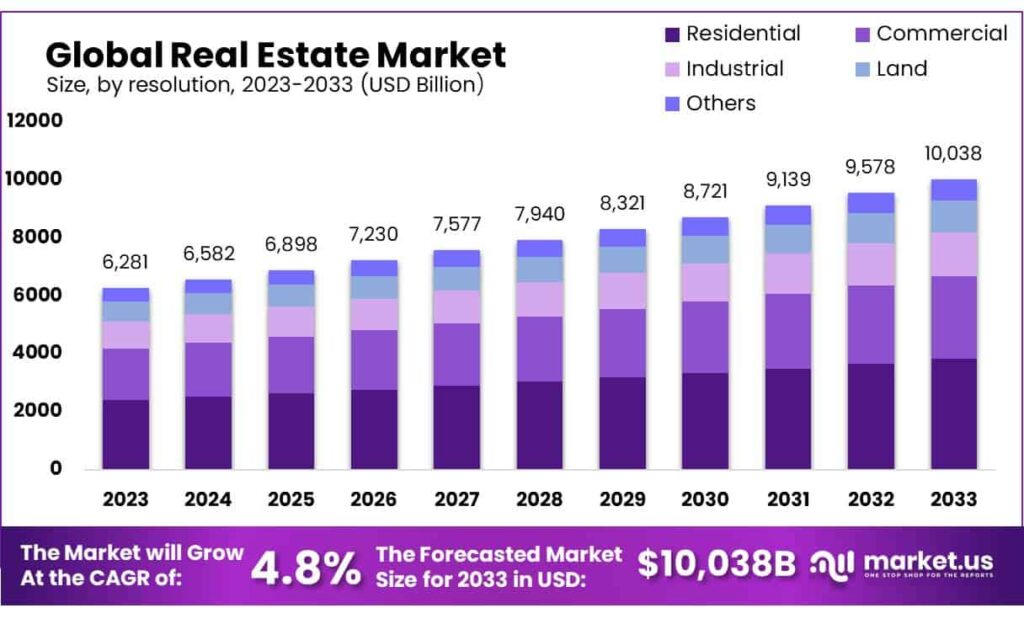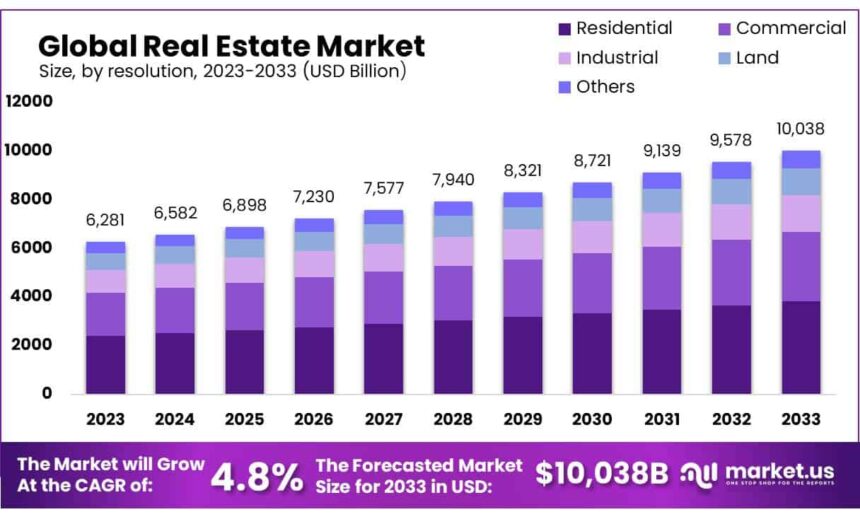The real estate market can often feel like a rollercoaster, with its ups and downs influencing buyers, sellers, and investors alike. If you’re considering entering the market, either by buying or selling a property, you may be wondering: is now the right time?
The decision to buy or sell a property is significant, and the timing can impact the profitability of the deal, your long-term financial stability, and your overall satisfaction. In this comprehensive guide, we’ll break down the current state of the real estate market and help you determine whether it’s a good time to make a move.
Understanding the Real Estate Market Cycle
To understand whether it’s a good time to buy or sell, it’s important to first grasp the cyclical nature of the real estate market. Like any market, real estate goes through periods of growth, stagnation, and decline. These cycles are influenced by a variety of factors, including economic conditions, interest rates, government policies, and regional trends.
1. Buyer’s Market vs. Seller’s Market
The terms “buyer’s market” and “seller’s market” refer to the balance of supply and demand.
- Buyer’s Market: In a buyer’s market, there is more inventory than demand. This gives buyers the upper hand, as they can negotiate better prices and terms.
- Seller’s Market: In a seller’s market, demand exceeds supply. Sellers can set higher prices, and buyers often have to compete for limited properties, making it more difficult to find a deal.
The current market conditions vary by location, so understanding whether you’re in a buyer’s or seller’s market is crucial when deciding to buy or sell.
Current Trends in the Real Estate Market
As of the beginning of 2025, the real estate market is experiencing fluctuations that could impact your decision. Here’s a closer look at some of the key factors shaping the market today:
2. Interest Rates
One of the most influential factors in the real estate market is the interest rate. When interest rates are low, borrowing is cheaper, which can spur demand for homes as more people can afford mortgages. On the other hand, when interest rates rise, it can dampen buyer enthusiasm, as monthly payments become higher.
Recently, interest rates have been relatively high compared to the historic lows we saw in the past decade. While this might make it harder for some buyers to enter the market, it also means sellers may find themselves with fewer buyers to choose from, potentially leading to a slowdown in price growth.
3. Inventory Levels
Inventory levels are a key indicator of whether the market is favoring buyers or sellers. In many cities, the real estate market has seen tight inventory, meaning that there are fewer homes available for sale. Low inventory levels can create competition among buyers, driving up prices and creating a seller’s market.
However, in some regions, inventory levels have begun to stabilize, which could indicate a shift toward a more balanced market. In these areas, both buyers and sellers may have more equal footing in negotiations.
4. Home Prices
In many markets, home prices have continued to rise despite higher interest rates, which is typical during a strong seller’s market. However, there are signs that home price growth may be slowing down in some regions, as affordability becomes an issue for buyers.
If you’re selling a home, you may still be able to capitalize on high prices, but if you’re looking to buy, you might be facing a tough challenge in finding a reasonably priced home.
5. Regional Market Variations
The real estate market is not uniform across the country. While some areas are seeing significant price increases, others may be experiencing a slowdown or even a decline in home values. Local economic conditions, job growth, and demographic shifts can all influence the health of the real estate market in a particular area.
Before making a decision, it’s essential to research the specific market you’re interested in, whether you’re buying or selling. Trends can vary significantly between cities, suburbs, and even neighborhoods.
When Is the Right Time to Buy?
If you’re looking to buy a home, timing is crucial, and there are several factors you should consider to determine whether now is a good time to enter the real estate market.
6. Interest Rates Impact Your Purchase Power
With interest rates remaining relatively high, you may want to evaluate whether you can afford the monthly mortgage payments. If rates continue to rise, it might make sense to lock in a rate sooner rather than later. However, some buyers are opting to wait, hoping that interest rates will eventually fall, making it easier to find a more affordable home.
7. Location is Key
In some markets, home prices have become inflated due to high demand and limited inventory. If you’re looking to buy in a competitive market, you may want to consider expanding your search to nearby areas where prices are lower and competition is less fierce. Additionally, looking for homes that need a bit of renovation or in up-and-coming neighborhoods might allow you to secure a better deal.
8. Economic and Job Growth
Regions experiencing robust job growth and economic stability are often prime places to purchase property. Even if interest rates are high, a strong local economy can make it easier to absorb the higher costs of owning a home. Researching the economic outlook of the area you’re interested in can help you make a better-informed decision.
When Is the Right Time to Sell?

For sellers, understanding when to put your property on the market is equally important. Timing can significantly impact how much you can sell your home for and how long it will take to find a buyer.
9. Take Advantage of High Home Prices
In a seller’s market, where inventory is low and demand is high, you may be able to sell your home for a premium. If home prices are continuing to rise in your area, it might be a good idea to take advantage of the market and sell while prices are still high.
However, if the market is showing signs of slowing down or if you’re concerned about the higher interest rates affecting buyers’ ability to afford your home, you might want to consider holding off until conditions improve.
10. Minimize Your Costs
If you’re planning to sell, you’ll also want to take steps to minimize your costs. This includes making necessary repairs or updates to increase the appeal of your home to potential buyers. A well-presented home is more likely to sell quickly and for a higher price.
How the Real Estate Market is Affected by Broader Economic Trends
Beyond local market conditions, the broader economy plays a critical role in shaping the real estate landscape. Here are a few key economic trends to keep an eye on:
11. Inflation and Consumer Confidence
Inflation and rising costs can affect both buyers and sellers in the real estate market. As inflation continues to rise, consumers may be less willing to make large purchases like homes, especially when the cost of living is already high.
However, if consumer confidence remains strong and individuals feel secure in their jobs and finances, they may be more likely to enter the market. In times of uncertainty, some may opt to delay their home purchase or sell off assets to protect their financial position.
12. Government Policies and Regulations
Government actions, such as changes in tax laws or new regulations for homebuyers and sellers, can also impact the real estate market. For example, first-time homebuyer incentives or changes to property tax laws can either encourage or deter people from buying or selling. It’s important to stay informed about potential policy changes that could affect the market.
Conclusion
Ultimately, whether it’s a good time to buy or sell in the real estate market depends on your individual situation, the current market conditions in your area, and broader economic trends. For buyers, it might be worthwhile to act soon if you’re concerned about rising interest rates, but only if you’re ready to handle the associated costs. For sellers, now could be a great time to capitalize on high prices, but make sure you’re prepared for a potentially competitive market.
Before making any major decisions, it’s always wise to consult with a real estate professional to get a clearer understanding of your local market. By staying informed and being strategic, you can make the best decision for your unique circumstances.

